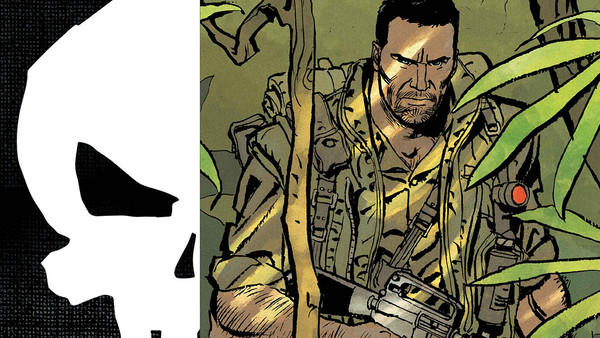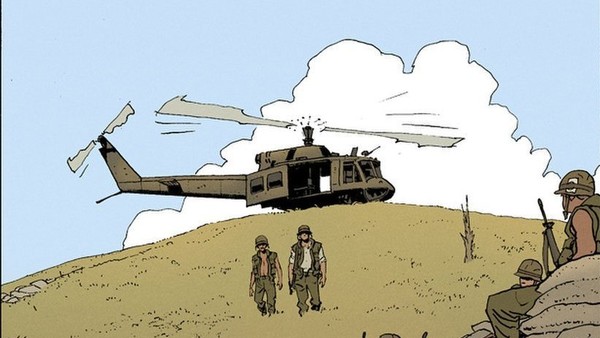Punisher: The Platoon #1 Review
Ennis and Parlov return with a prequel to 'Born'. It's really quite good.

Rating: ★★★★
It's been a little under a decade since Garth Ennis and Goran Parlov set their sights to reinventing the Punisher, but they're back at it again with 'The Platoon', a six issue miniseries that serves as a prequel of sorts to Punisher: Born - the storyline in question that redefined the character with an explicit look into his experiences in Vietnam.
The Platoon releases with high expectations in mind, then, with Ennis often being credited with having produced the definitive Punisher run of all time during the Max era. Fortunately for us, The Platoon #1 exhibits all the same qualities that made Born such a riveting read in the first place, providing a strong introduction to a series that will, ostensibly, build upon the themes of that original storyline, and further explore the genesis of of the character's psychological and ideological tenets.
The premise at play here isn't so much that Castle's war years contributed to the character's path to vigilantism, but instead fermented them. The Platoon seemingly goes one step further too, implying that Frank may well have arrived in Vietnam already a violent man; an effective soldier, yes, but one seemingly unfazed by the brutal realities of the conflict.
Much like Oliver Stone's seminal 1986 war movie, the Platoon roots itself in the zeitgeist of America's long 1960s. Following a non-linear approach, in which a group of Castle's former squaddies are interviewed by an anonymous journo in the present, Ennis broaches many of the themes Stone did in his film, analysing Vietnam as a transformative event in the American psyche and one that would hold grave consequences for Frank Castle in particular.
Final Thoughts

It makes for a fascinating prelude to Born itself, and it's very clear that there's more to the book than just a simple war story. It's just really, really clever, and while we're yet to see the book really earn its Max banner, there's little doubt that Ennis is building to something horrifying - an event as unnerving as the Valley Forge incident itself.
There's a particularly brilliant moment in the comic that arrives on its second or third page, in which one of the veterans questions his interviewer regarding the concept of there ever having been an 'innocent America'. It seems as though Ennis sets up this moment as a thematic analogue to Castle's own destiny - disputing the notion that there ever truly was an innocent incarnation of the character:
"You know, one thing I never understand is this idea people like you have about America being innocent. When were we innocent?"
"Look at what happened to the Indians on the plains. Look at the corruption in the building of the cities, it's unbelievable. And long before 'Nam there was what we did to the people of the Philippines, back at the turn of the last century. Read about it."
It's a fascinating question to consider, and while there's every chance Ennis is using the setting as a means of contravening the notion of there ever having been a 'good' sixties, it's clear that the series will be using historical context as a key element in the formation of Castle's origins. What it does is lend the Platoon a salience and intrigue other Punisher books have somewhat struggled to find in recent years. More important, however, is that it's able to boast a wide appeal, providing a look into a character that - while not a hero by any definition - has a heck of a lot of baggage to unload.
How fortunate we are that Ennis is the one doing the unpacking.
What did you think of the Platoon's first issue? Let us know in the comments below!